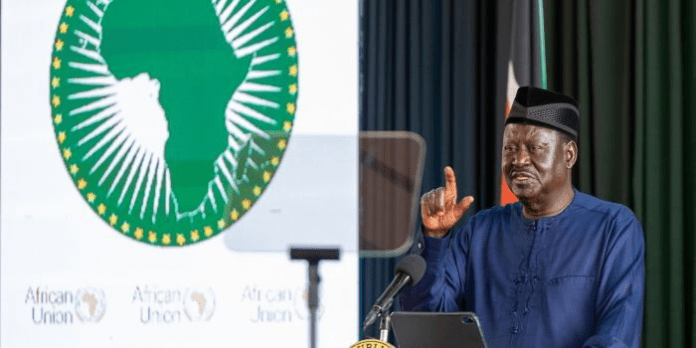
Raila Odinga has renewed his call for the African continent to secure representation in the United Nations Security Council (UNSC).
Highlighting the prevalence of political and civil conflicts across Africa, the former Kenyan Prime Minister argued that it is time for the continent to have a voice in the council. He made his case during the Mjadala Afrika debate in Addis Ababa on Friday, December 13, where he faced off with two competitors for the African Union Commission (AUC) chairmanship.
Raila pointed out that Africa’s lack of representation in the UNSC has contributed to the persistent conflicts in the region, asserting that the absence undermines efforts to achieve international peace and security.
He pledged that, if elected AUC Chairperson, he would champion the inclusion of Africa in the council to ensure the continent contributes to critical decisions on global security.
“The issue of Africa’s representation in the Security Council is long overdue,” Raila stated. “The UN was formed when most parts of Africa were colonies, which is why its structure does not reflect the realities of today. Africa must get two permanent seats in the Security Council, complete with veto powers.”
He emphasized the continent’s growing population and post-colonial advancements as strong justifications for Africa’s inclusion in the UNSC, stating:
“We are a continent of 55 sovereign nations. It is only fair that Africa has permanent representation, especially when Europe has three permanent representatives. Permanent seats with veto powers are a must for Africa, and I will work with the continent’s leadership to achieve this.”
Raila is seeking to succeed Moussa Faki, who has been at the helm of the AU secretariat since 2017.
His competitors include Djibouti’s long-serving Foreign Affairs Minister Mahamoud Youssouf and Madagascar’s former Foreign Affairs Minister Richard Randriamandrato.
The vote for the AUC Chairperson will take place in February 2025, with only heads of state eligible to cast their votes. A candidate will require either consensus support or at least a two-thirds majority from member states to secure the position.






